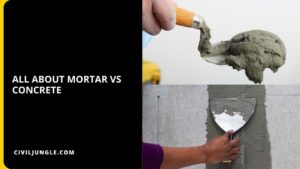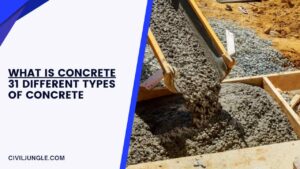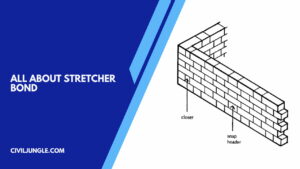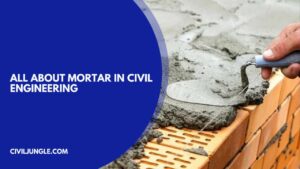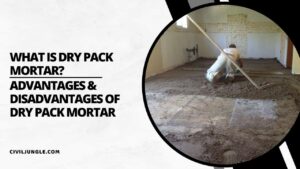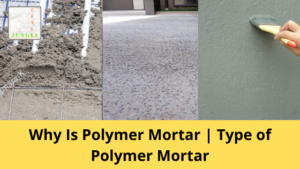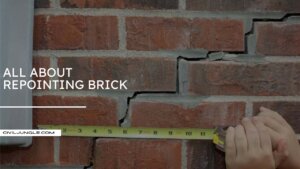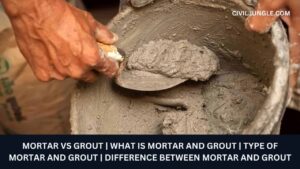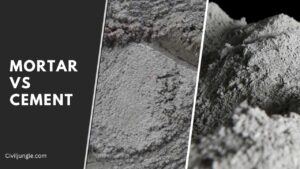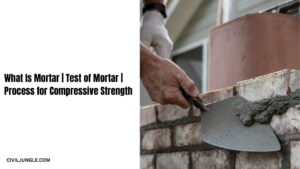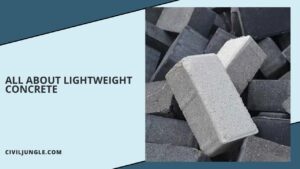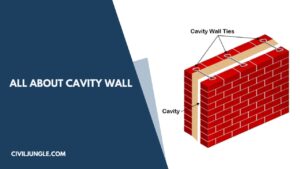What Is Mortar? Mortar is a mixture in varying proportions of binding material like cement or lime and an inert material like sand or surkhi (crushed burnt brick) or crushed stone mixed with water. According to requirement, … [Read more...]
What Is Estimate | Types of Estimate |Requirement Data for Estimation |Advantage of Estimate | Disadvantage of Estimate | Types of Cost Estimation
What Is Estimate? The estimated or anticipated cost of the project is an estimate that is commonly calculated well before the project is taken up. It is important to understand its probable cost, which would be achieved or … [Read more...]
What Is Concrete | 31 Different Types of Concrete
What Is Concrete? Concrete is the final product resulting from mixing cement, aggregates (including sand), water, and mixtures. It is initially malleable in its "wet" state and solidifies over time, gaining strength and … [Read more...]
All About Heated Driveway Systems | How Do Heated Driveway Systems Work
How Do Heated Driveway Systems Work? A heated driveway system is a type of system designed to melt snow and ice from the surface of a driveway or sidewalk, making it easier to use and safer to walk or drive on during the … [Read more...]
What Is Stretcher Bond | Advantages of Stretcher Bond | Disadvantages of Stretcher Bond | Application of Stretcher Bond | Use of Stretcher Bond
Introduction of Stretcher Bond: Bonding is actually an arrangement of bricks in a structure like a wall or a column. The arrangement in brickwork in order that the units are tied together to make a solid mass is called bonding … [Read more...]
What Is Tunel | Types of Tunnels | What Are Tunnels Used for | Classification of Tunnel | How Are Tunnels Built |Advantages of Tunnels | Disadvantages of Tunnels
What Is Tunel? Tunnels are artificial underwater tunnels that are built without damaging the surface of the earth. The tunnels are underwater passageways used mostly for transport purposes. They may be used to transport … [Read more...]
Mortar in Civil Engineering | What Is Mortar | Properties of Mortar | Uses of Mortar | Types of Mortar | Mortar in Construction
Mortar in Civil Engineering: The term mortar is utilized to show a paste arranged by adding a necessary amount of water to a combination of restricting material like concrete or lime and fine aggregate like sand. This is utilized … [Read more...]
All About Porch Flooring | Types of Porch Flooring | Natural Stone Porch Flooring
Porch Flooring Whether you're starting from scratch or giving an existing porch a facelift, flooring is a crucial consideration. There is no shortage of porch flooring designs, but you should give careful consideration before … [Read more...]
What Is Dry Pack Mortar | Advantages of Dry Pack Mortar | Disadvantages of Dry Pack Mortar
Introduction of Dry Pack Mortar Dry pack mortar simply is a mixture of cement, sand, and water in the appropriate proportion. Dry pack mortar is also known as deck mud or floor mud. Dry pack mortar is used for repairing the … [Read more...]
What Is False Ceiling | Why We Need False Ceiling | Types in False Ceilings | Advantages & Disadvantage of False Ceiling | False Ceiling Installation Steps by Step
Introduction of False Ceiling The ceiling is the first thing which a person noticed whenever we entered the room. The Trend of Flat slabs in our home is fallen and nowadays there is a great demand for False Ceiling for the … [Read more...]
Why Is Polymer Mortar/Concrete | Types of Polymer Mortar/Concrete
Polymer concrete is a combination material in which the binder consists entirely of synthetic organic polymers, also known as artificial resin concrete. Polymer concrete consists of a minerals filler, for example, aggregate and … [Read more...]
All About Repointing Brick | What Is Repointing Brick | When You Need Brick Repointing | Types of Repointing Brick
What Is Repointing Brick? Repointing brick is generally known as repointing of brick or repointing of brickwork. Repointing of brickwork is a basic process where you renews or repair the outer portion of your brickwork. In … [Read more...]
What Is Mortar | How to Make Mortar | How to Mix Mortar | Uses of Mortar | Cement Mortar in Construction
What Is Mortar? Mortar is an intimate mixture of inert cementing material, fine aggregates and water. It's a workable paste which hardens to bind blocks such as brick, stone, concrete block, etc. It's mainly used for binding … [Read more...]
Mortar Vs Grout | What Is Mortar and Grout | Type of Mortar and Grout | Difference Between Mortar and Grout
What is Mortar? The term mortar is used to indicate that a paste prepared by adding the required quantity of water into a mixture of binding material (cement or lime) and fine aggregate (sand). The above two elements of mortar, … [Read more...]
Mortar Vs Cement | Types of Cement | Types of Mortar
Mortar Vs. Cement The difference between mortar and cement is that cement is the bonding agent, while the mortar is a product composed of cement, sand, and lime. Both substances have different purposes, as the cement is … [Read more...]
What Is Mortar | Test of Mortar | Process for Compressive Strength
What Is Mortar? Mortar is an intimate mixture of binding material, fine aggregate, and water. When water is added into the dry mixture of binding material and the inert material, binding material develops the property that binds … [Read more...]
What Is Lightweight Concrete | Properties of Lightweight Concrete | Uses of Lightweight Concrete | Advantages & Disadvantages of Lightweight Concrete
What Is Lightweight Concrete? It can be defined as a type of concrete that includes an expanding agent that increases the volume of the mixture while giving additional qualities such as nailability and lessened the dead … [Read more...]
What Is a Cavity Wall | How to Build a Cavity Wall | Cavity Wall Detail | Cavity Wall Thickness | Cavity Wall Insulation Pros and Cons | Brick Cavity Wall
What Is a Cavity Wall? A cavity wall consists of a hollow space between them. The cavity walls normally consist of two skins, which should be brick, cinder blocks, or reinforcement concrete blocks, etc. The absorbent … [Read more...]
